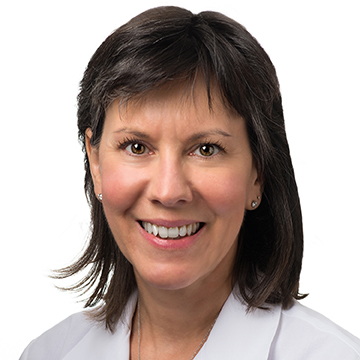COVID-19 Antibody Testing with Elizabeth McNally, MD, PhD
A team of Northwestern scientists have come together from across disciplines to develop a COVID-19 antibody test designed for at-home use. Elizabeth McNally, MD, PhD, is part of the team working on this test to determine prior exposure to the virus.

"We really want to start to understand the difference of who became really sick. Why did they become really sick? And another way of looking at that same question is actually asking, 'Why were some people protected?'"
- Director of the Center for Genetic Medicine
- Elizabeth J. Ward Professor of Genetic Medicine
- Professor of Medicine in the Division of Cardiology
- Professor of Biochemistry and Molecular Genetics
- Member of the Center for Arrhythmia Research
- Member of the Feinberg Cardiovascular and Renal Research Institute
- Member of Northwestern University Clinical and Translational Sciences Institute
- Member of the Simpson Querrey Center for Epigenetics
Episode Notes
Although many patients who contract COVID-19 become seriously ill, a significant percentage of those infected may show mild symptoms or none at all, causing greater community spread. Serology tests, or antibody tests, are useful for determining prior exposure to a virus, like the one that causes COVID-19. However, current approaches to antibody testing have limitations: Point-of-care tests using finger stick blood are qualitative and often inaccurate, while more precise lab tests require venous blood.
In response to these limitations, a team of Northwestern biological anthropologists, pharmacists, scientists and physicians have come together to develop a new, at-home antibody test for COVID-19. This inexpensive, relatively painless test would allow people to collect their own blood with a finger prick and send samples to a lab through the mail.
Elizabeth McNally, MD, PhD, is part of the team working on this test. To broadly survey the population when few people are leaving their house requires a more accessible test, McNally says. The team is using the dried blood spot method pioneered by Northwestern anthropologist Thomas McDade, PhD, which allows the test to be safely sent in the mail. This approach overcomes the logistical challenges associated with venous blood collection at low cost. Since testing materials have been in short supply, the team manufactured key reagents. The team is also using an assay developed by the Florian Krammer, PhD, lab at Icahn School of Medicine at Mount Sinai.
McNally says next steps for the tests include community testing, a website to recruit study participants and compare results in different neighborhoods, and longitudinal data collection and analysis.
Additional Reading:
- Preprint paper on MedRxiv
- Read the Northwestern press release on the novel tests.
Subscribe to Feinberg School of Medicine podcasts here:
iTunes
Spotify
Google Play Music
Recorded on: May 7, 2020
Continuing Medical Education Credit
Physicians who listen to this podcast may claim continuing medical education credit after listening to an episode of this program.
Target Audience
Academic/Research, Multiple specialties
Learning Objectives
At the conclusion of this activity, participants will be able to:
- Identify the research interests and initiatives of Feinberg faculty.
- Discuss new updates in clinical and translational research.
Accreditation Statement
The Northwestern University Feinberg School of Medicine is accredited by the Accreditation Council for Continuing Medical Education (ACCME) to provide continuing medical education for physicians.
Credit Designation Statement
The Northwestern University Feinberg School of Medicine designates this Enduring Material for a maximum of 0.5 AMA PRA Category 1 Credit(s)™. Physicians should claim only the credit commensurate with the extent of their participation in the activity.
Disclosure Statement
Elizabeth McNally, MD, PhD, disclosed external professional relationships with Invitae, Fibrogen, AstraZeneca, Exonics and Pfizer, Inc. Course director, Robert Rosa, MD, has nothing to disclose. Planning committee member, Erin Spain, has nothing to disclose. Feinberg School of Medicine's CME Leadership and Staff have nothing to disclose: Clara J. Schroedl, MD, Medical Director of CME, Sheryl Corey, Manager of CME, Jennifer Banys, Senior Program Administrator, Allison McCollum, Senior Program Coordinator, and Rhea Alexis Banks, Administrative Assistant 2.
